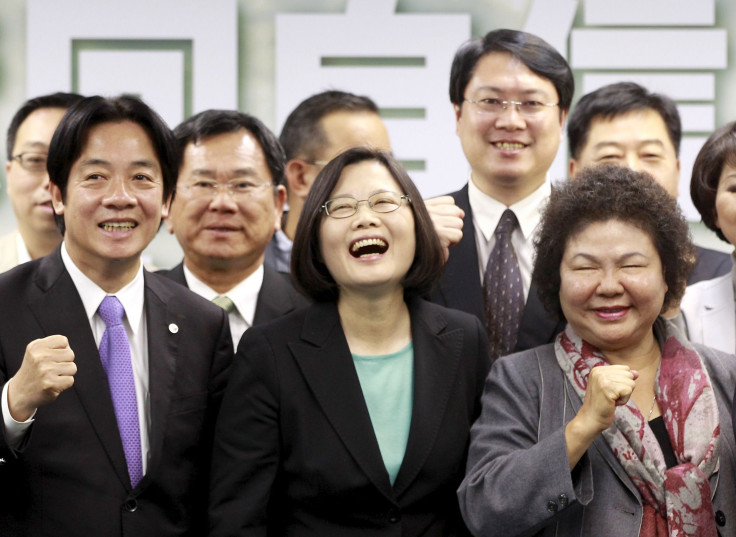Two Women Square Off As Top Candidates In Taiwan's 2016 Presidential Race

Taiwan's two major political parties have each named women as presidential candidates, making it almost inevitabile that the nation will elect its first female president in 2016.
Hung Hsui-chu, a 67-year-old former schoolteacher, got the nod from Taiwan's ruling Nationalist party. She will face the chairwoman of the opposition Democratic Progressive Party, 59-year-old Tsai Ing-wen.
Gender is likely to matter far less in the election than China policy, a topic that dominates Taiwanese politics and distinguishes the two candidates. Hung favors a closer relationship and deepened trade ties with China. Tsai, meanwhile, supports maintaining de facto independence from China and easing Taiwan's economic depedence on the mainland.
Beijing officially regard Taiwan as part of a single, unified China, a position Hung's Nationalist party leans towards. The DPP sees Taiwan as a politically separate entity, with some in the party supporting a legal separation from the mainland. A majority of Taiwanese support maintaining self-rule.
Taiwan's Nationalist party established its government in Taipei in 1949 after the rival Communist Party prevailed in China's civil war.
Early polling favors Tsai, a reserved career politician. Hung, who ran into controversy before her official nomination for suggesting much closer ties with mainland China, boasts a more confrontational political style in a government known for its raucous parliamentary debates. As the Associated Press points out, Hung's aggressive approach has earned her the nickname "little chili pepper."
Taiwan would not be the first East Asian government to be led by a woman. Other female leaders in the area include South Korea's Park Geun-hye and, until last year, Thailand's Yingluck Shinawatra.
Taiwanese voters will choose between the two mainstream candidates and at least two independents on Jan. 16.
© Copyright IBTimes 2024. All rights reserved.






















